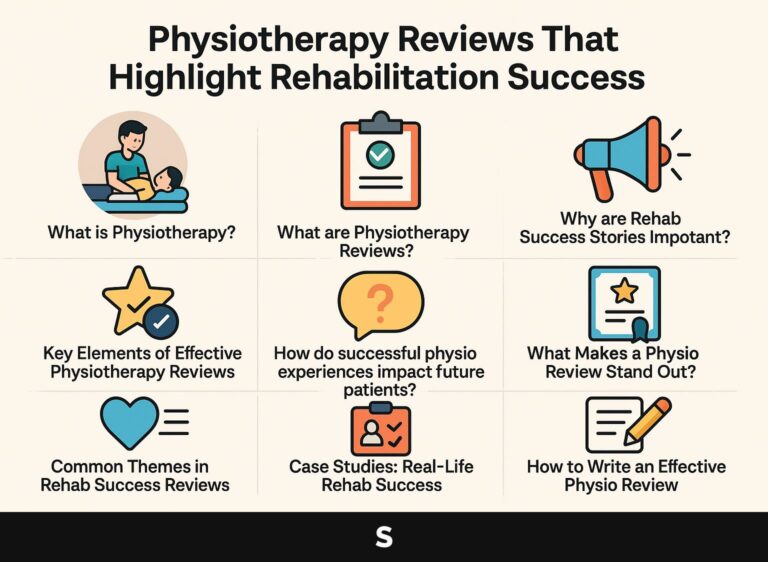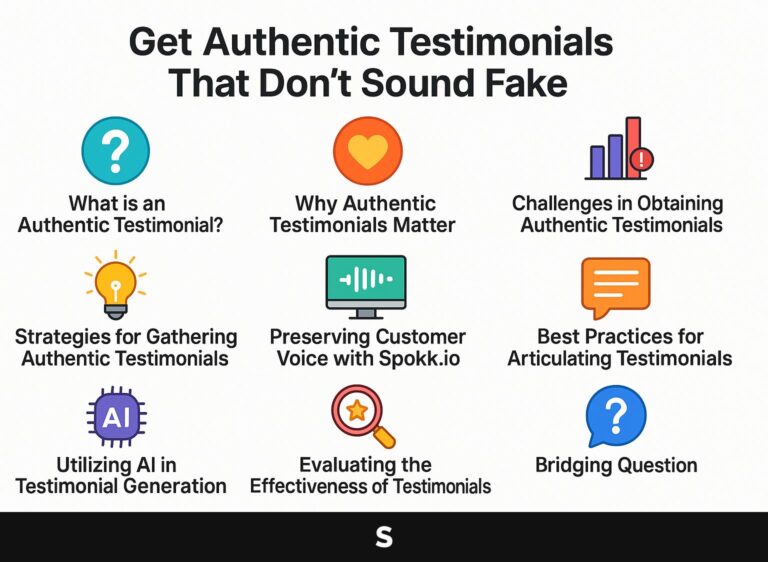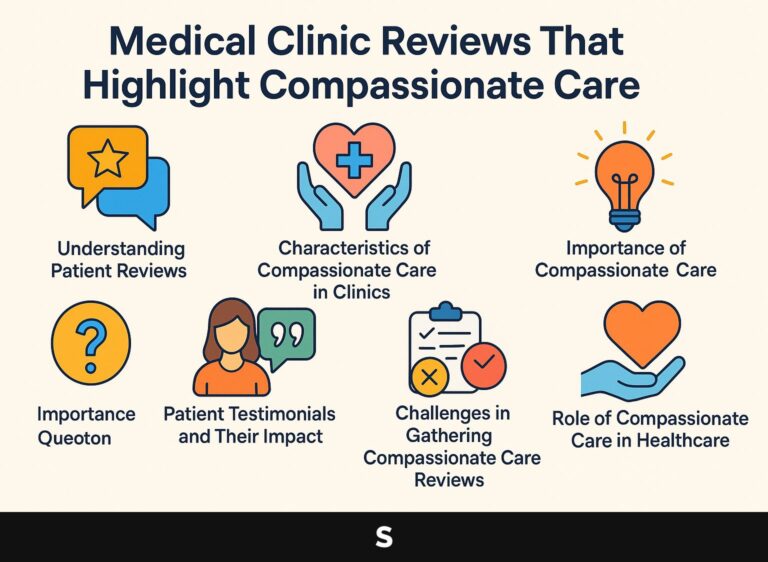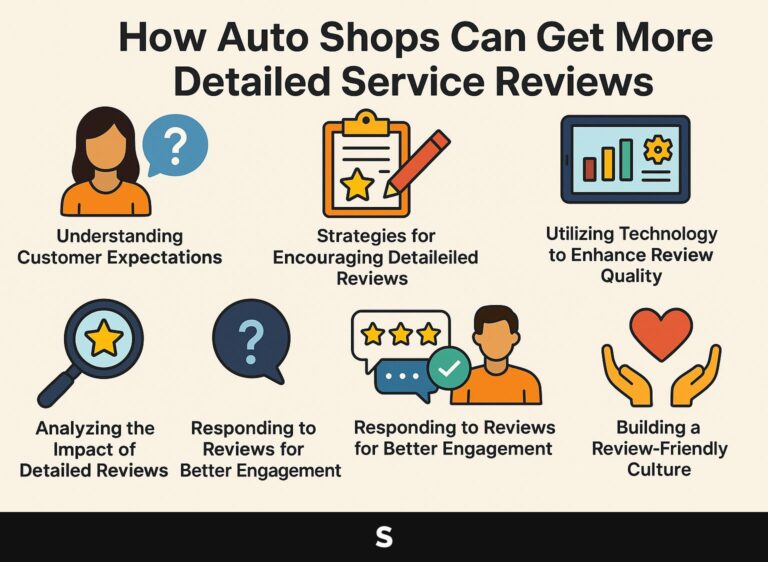How Law Firms Can Get Client Reviews Without Violating Ethics Rules
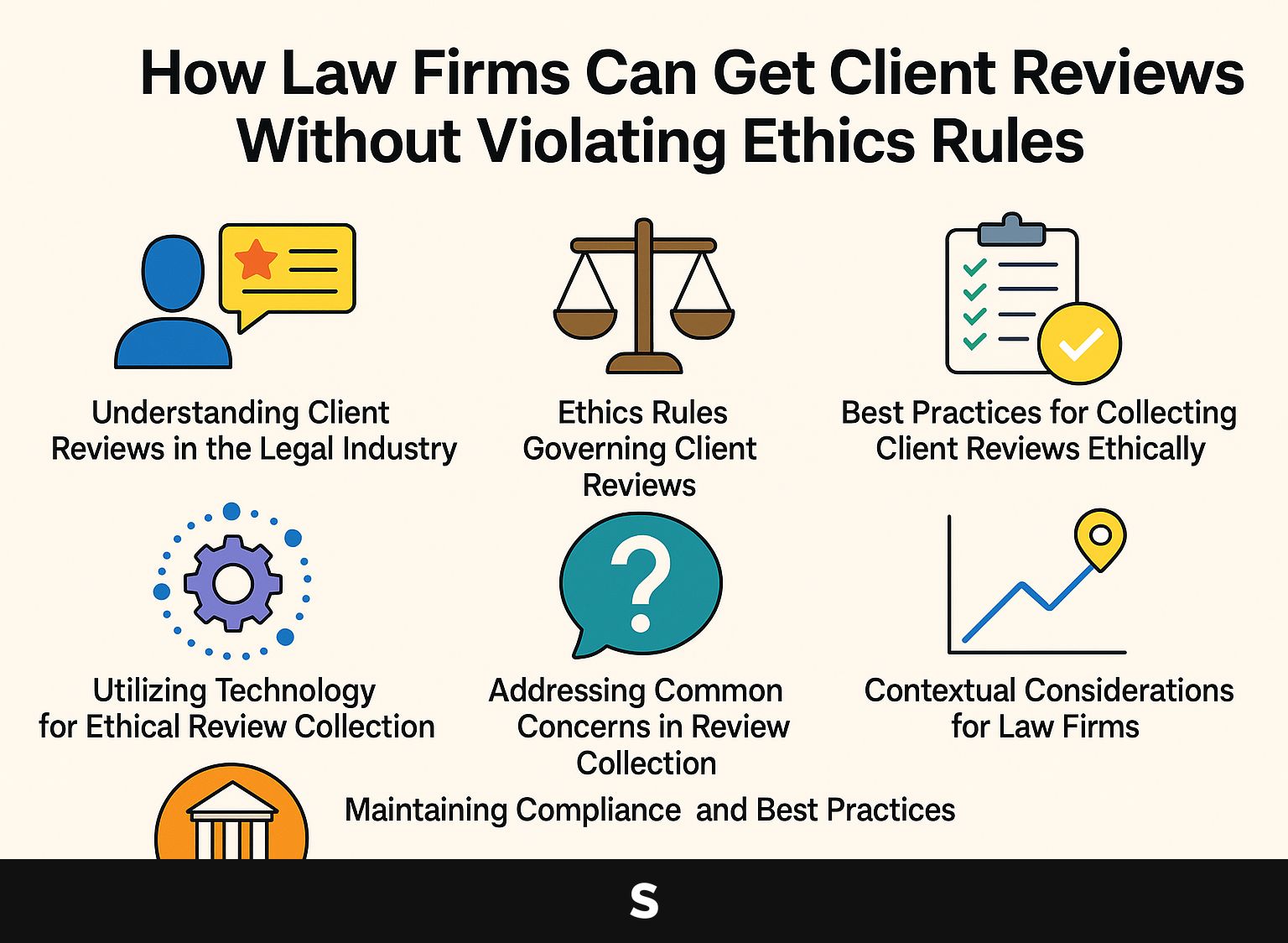
Finding the right way to gather client testimonials while following marketing rules can be challenging for law firms. With rules from the American Bar Association and state bars such as Florida’s taking effect, knowing how to ask for feedback while maintaining professional standards is essential. This article will show you effective ways to get reviews that focus on the quality of your service and how quickly you respond, using new tools like Spokk.io to follow attorney advertising rules.
Key Takeaways:
- How Law Firms Can Get Client Reviews Without Violating Ethics Rules
- Client Feedback in the Legal Industry
- Ethics Rules Governing Client Reviews
- Best Practices for Collecting Client Reviews Ethically
- Utilizing Technology for Ethical Review Collection
- Addressing Common Concerns in Review Collection
- Bridging Question
- Contextual Considerations for Law Firms
- Maintaining Compliance and Best Practices
- Examples of Ethical Review Collection in Action
- **Emerging Trends in Client Reviews for Law Firms** As the legal field evolves, client feedback is becoming increasingly important. Law firms must pay close attention to client opinions to remain competitive. Future patterns in this area include: 1. **More Online Reviews**: Clients are increasingly posting reviews on the internet, so it’s important for law firms to keep an eye on these reviews and respond to them quickly. 2. **Importance of Transparency**: Clients expect openness and honesty. Law firms that clearly outline their procedures and fees are likely to receive more positive feedback. 3. **Priority on Client Satisfaction**: Delivering an excellent client experience will be important. Clients who feel valued and heard are more inclined to provide favorable feedback. 4. **Review Analysis**: Law firms can benefit from examining review data to find areas for improvement and to emphasize their strengths. 5. **Using Feedback to Improve Services**: Applying client feedback to enhance services and address common concerns will help maintain a good reputation. By concentrating on these areas, law firms can improve their services and strengthen their connections with clients.
- Frequently Asked Questions
- Can law firms ethically collect client reviews?
- Are there any specific rules law firms need to follow when collecting client reviews?
- How can AI technology help law firms gather ethical client reviews?
- Is it important for law firms to gather client reviews?
- How can law firms use client reviews to attract new clients?
- What are some other ethical ways for law firms to gather feedback from clients?
How Law Firms Can Get Client Reviews Without Violating Ethics Rules
Law firms struggle to gather client reviews and must comply with ethical guidelines to improve their online reputation without breaking ABA Model Rules.
What are the ethical considerations for law firms in collecting reviews?
Ethical considerations for law firms include ensuring that client reviews do not disclose case specifics or outcomes, which could breach attorney-client privilege and violate ABA guidelines.
For instance, when a client wishes to share their experience, firms should secure consent explicitly stating that no case details will be mentioned.
When soliciting feedback, firms might face dilemmas like clients wanting to highlight favorable outcomes that could imply attorney performance guarantees. To handle this, create clear internal rules that explain what kind of review language is allowed and teach clients about these rules.
Tools like Consentium can simplify managing client consent, making sure that ethical standards are followed.
Client Feedback in the Legal Industry
Client reviews are an important marketing tool for law firms because they show evidence that can greatly affect potential clients’ choices. Related insight: How to Collect Customer Feedback for Law Firms Using ‘Spokk’
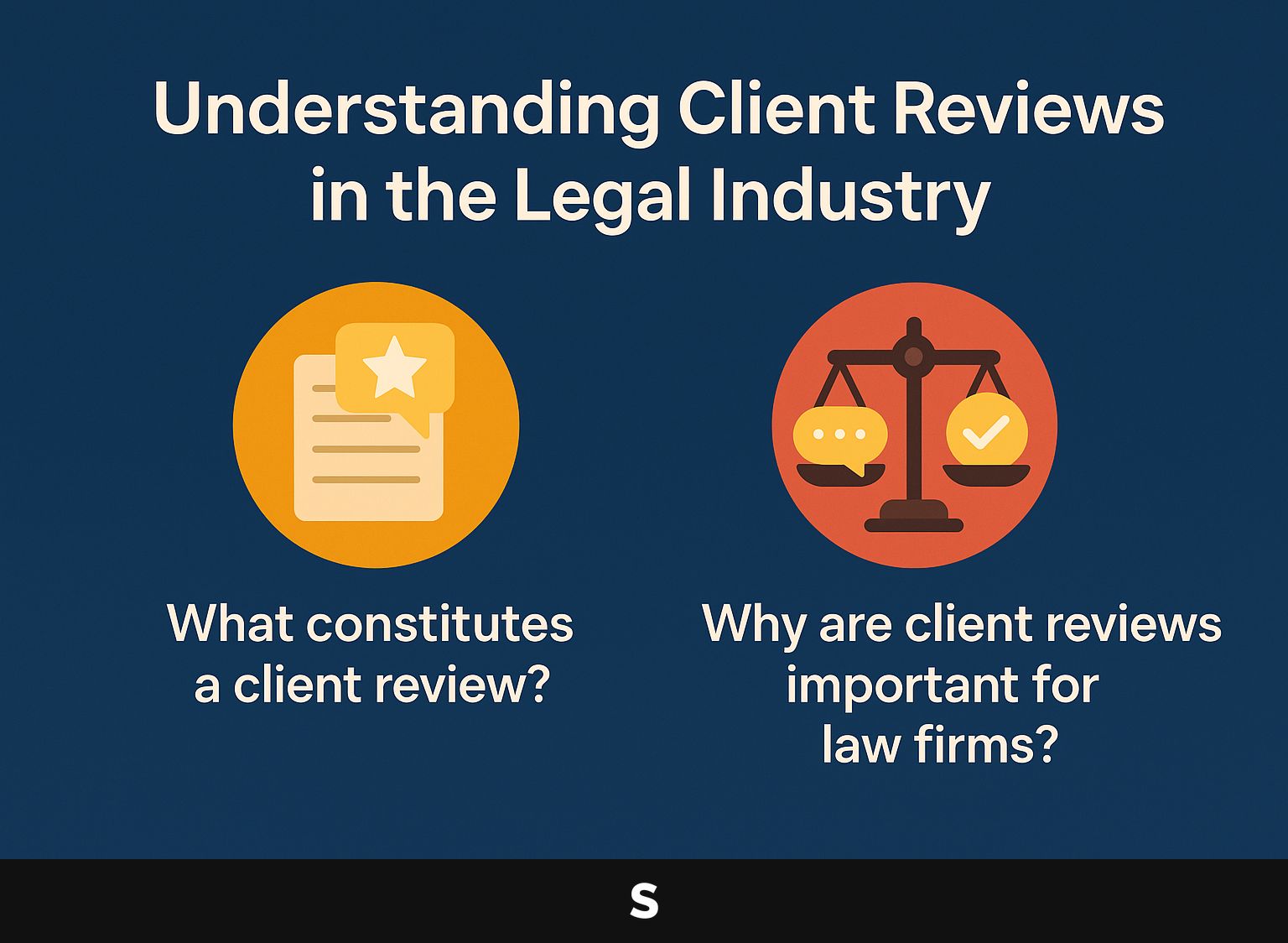
What constitutes a client review?
A client review is defined as feedback that reflects a client’s experience with a law firm’s service, focusing on communication, professionalism, and overall satisfaction without revealing sensitive information.
To make sure your review is legitimate, think about these key points:
- First, it should honestly describe your experience, including specific interactions with the attorney or staff. You could talk about how quickly your questions were addressed or how clearly the lawyer described legal ideas.
- Second, emphasize professionalism-did they treat you with respect and compassion? Reflect on your overall satisfaction, evaluating whether their services met your expectations.
Don’t share names or specific cases to protect privacy, but give useful information to upcoming clients.
Why are client reviews important for law firms?
Getting feedback from clients is important for law firms. It helps maintain their public image, makes them easier to find online locally, and creates trust with people looking for legal help.
Studies show that 84% of people trust online reviews as much as personal recommendations.
For instance, a law firm in Chicago saw a 40% increase in client inquiries after soliciting and showcasing positive client testimonials on their website and Google My Business profile.
Tools like Podium or Birdeye facilitate the collection and management of these reviews effectively.
Getting happy clients to write reviews on sites like Yelp or Avvo can greatly increase visibility and trust, leading to more business.
Ethics Rules Governing Client Reviews
Knowing the ethics rules for client reviews is essential for law firms to follow regulations and maintain their professional standards.
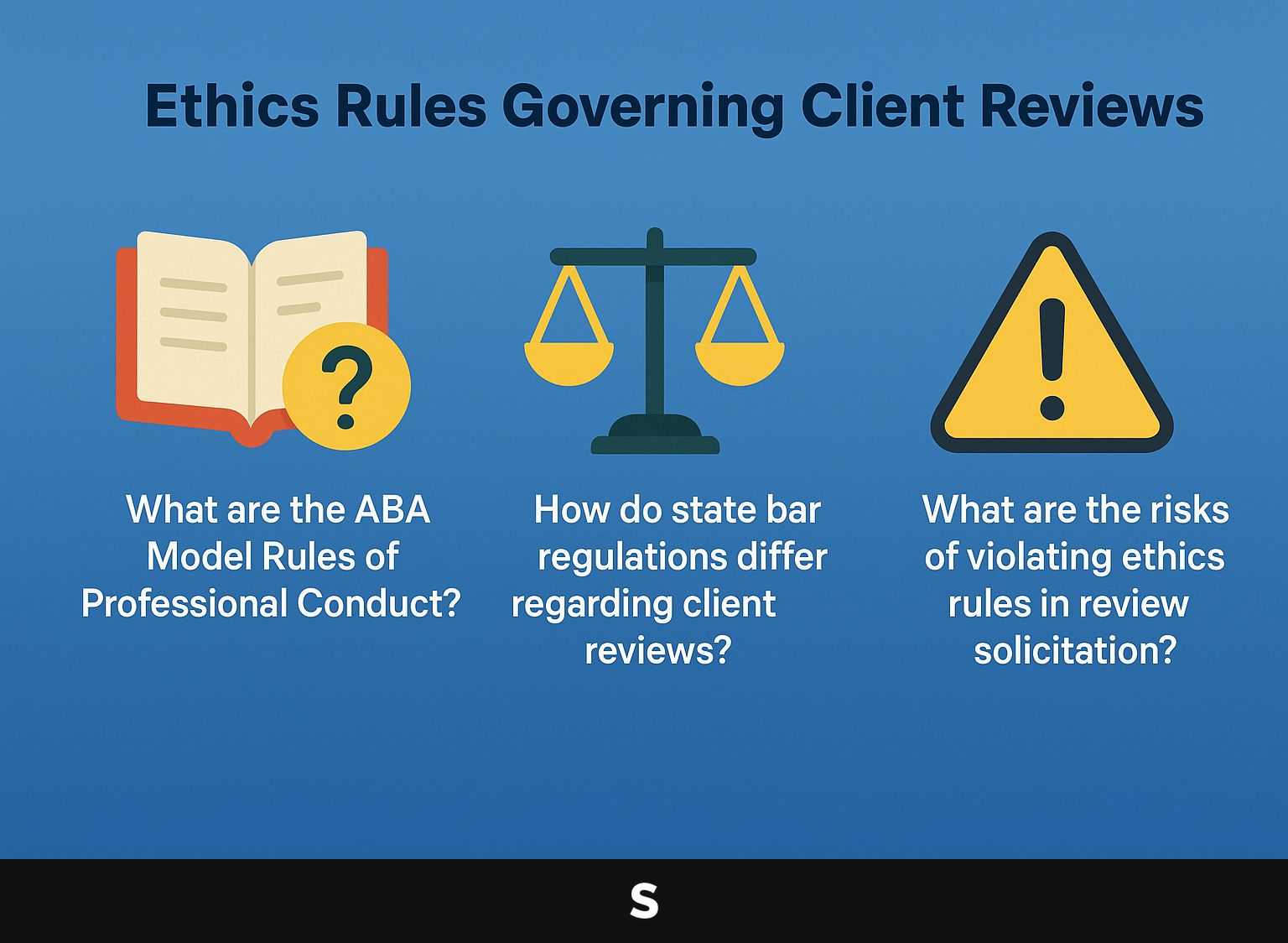
What are the ABA Guidelines for Lawyer Behavior?
The ABA Model Rules of Professional Conduct describe how lawyers should act, including guidelines on how they should discuss and promote their services.
A key aspect for attorneys is the prohibition on using false or misleading testimonials in their marketing. This means any requested reviews need to truly reflect what clients went through.
Attorneys must also maintain transparency when asking for reviews, ensuring clients understand the purpose and context. For example, employing clear language in emails requesting feedback, such as stating how the review will be used, aligns with the rules.
Make sure that any testimonials you post are accurate and do not mislead potential clients.
How do state bar regulations differ regarding client reviews?
State bar rules vary widely, affecting how lawyers can request and present client reviews. Law firms need to be aware of their state’s specific regulations.
In Florida, lawyers can ask for reviews but must be honest about them. In contrast, New Jersey does not allow offering rewards for testimonials.
To comply, law firms should first review their state bar’s guidelines, often available on their official websites. Next, establish a clear policy for client engagement regarding reviews.
Consider using tools like GatherUp or Google My Business to simplify requests and handle client feedback smoothly. This method improves compliance and strengthens your reputation.
What are the risks of violating ethics rules in review solicitation?
Violating ethics rules in review solicitation can result in significant reputational risks, potential sanctions from bar associations, and damage to client trust.
For example, a prominent law firm faced a substantial fine after soliciting reviews in exchange for discounts on services. This breach caused financial penalties and also hurt their reputation with peers and clients.
To avoid such pitfalls, firms should establish clear policies in line with ethical guidelines, ensuring all employee training includes scenarios highlighting these rules.
Checking marketing practices regularly can help follow rules, protect reputation, and maintain client relationships.
Best Practices for Collecting Client Reviews Ethically
Following proper methods to gather client feedback is important for law firms to meet legal standards and improve relationships with clients.
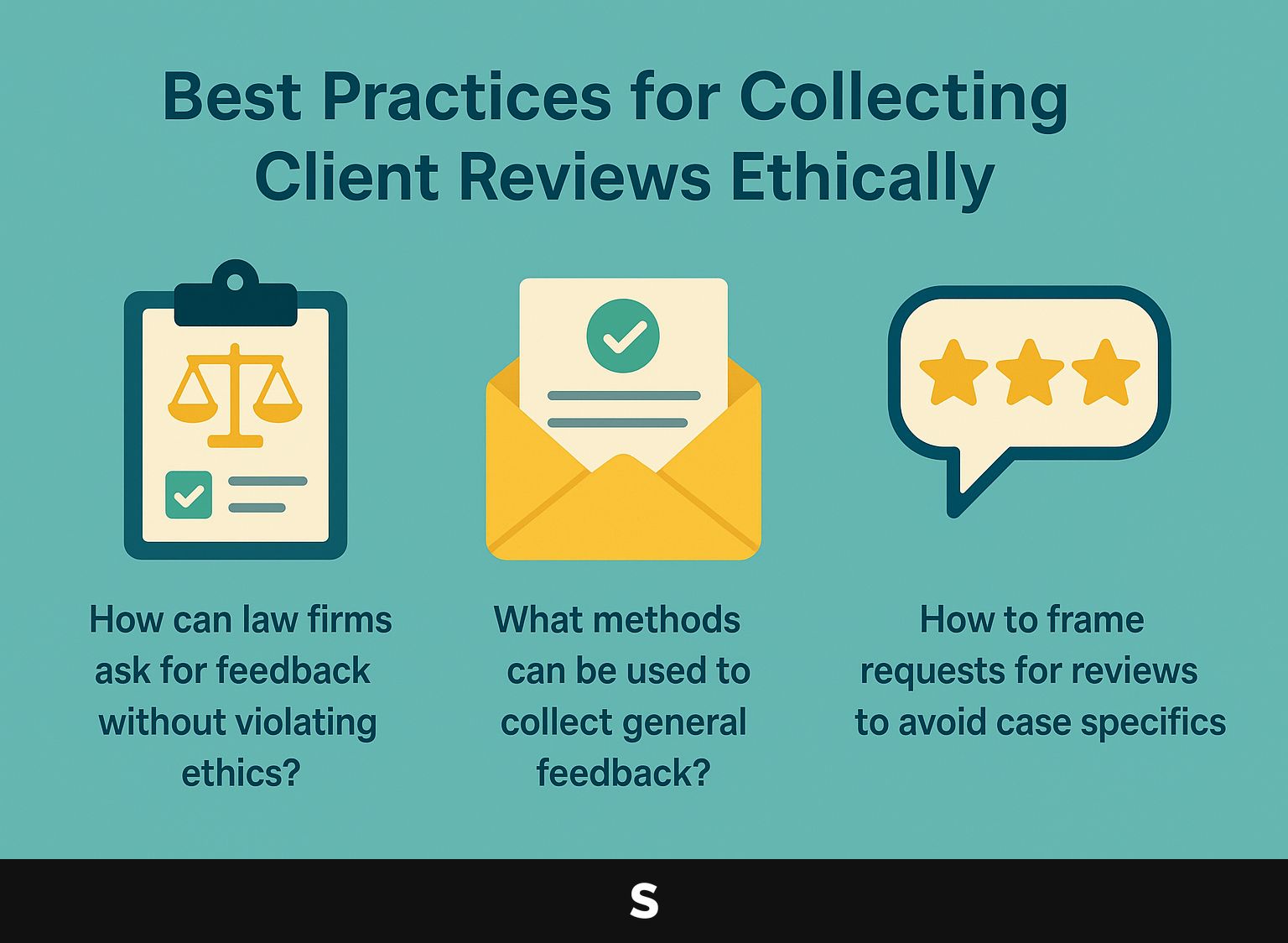
How can law firms ask for feedback without violating ethics?
Law firms can ethically request feedback by clearly informing clients about the purpose of their request and avoiding any inducements for positive reviews.
To make feedback requests more effective, choose the right timing. Reach out shortly after service delivery, capturing the client’s experience while it’s fresh.
Use neutral language in your request, like, “We value your input to help us improve our services.” An example could involve sending a brief email or a text message including a simple survey link.
Tools like Google Forms or SurveyMonkey can facilitate this process, allowing for anonymous responses, which often yield more honest feedback that can drive genuine improvements.
What methods can be used to collect general feedback?
Law firms can use different ways to get general feedback, like online surveys, follow-up emails, and casual check-ins, while staying within ethical guidelines.
Using online tools like SurveyMonkey and Google Forms allows firms to make custom surveys. For instance, a satisfaction survey can include questions about client expectations and experiences.
After a case finishes, send follow-up emails asking clients for feedback to understand their thoughts. Chatting informally during everyday talks can lead to open discussions, making clients feel valued.
Remember to obtain explicit consent before collecting feedback, ensuring privacy compliance by anonymizing responses and clearly stating how data will be used.
How to frame requests for reviews to avoid case specifics?
It’s important for compliance to ask for reviews without mentioning case details. Instead, firms should highlight overall experiences with communication and professionalism.
To gather effective feedback, consider these phrasing strategies:
- ‘We’d appreciate your thoughts on our service’s overall quality.’
- ‘Could you share how our team met your expectations?’
These questions encourage clients to discuss their experiences while steering clear of sensitive details. Using tools like SurveyMonkey allows you to create anonymous surveys for honest answers, while sending follow-up emails immediately after a service helps you gather feedback while it’s still fresh in people’s minds.
Keep in mind that being genuine in your request can lead to more interaction and truthful reviews.
Utilizing Technology for Ethical Review Collection
Using technology, especially AI, can help gather client reviews in a responsible way while following legal rules. For businesses looking to optimize this process, understanding the nuances of effective feedback systems is crucial. Mastering customer feedback management can provide the necessary insights into managing and maximizing the value of client reviews.
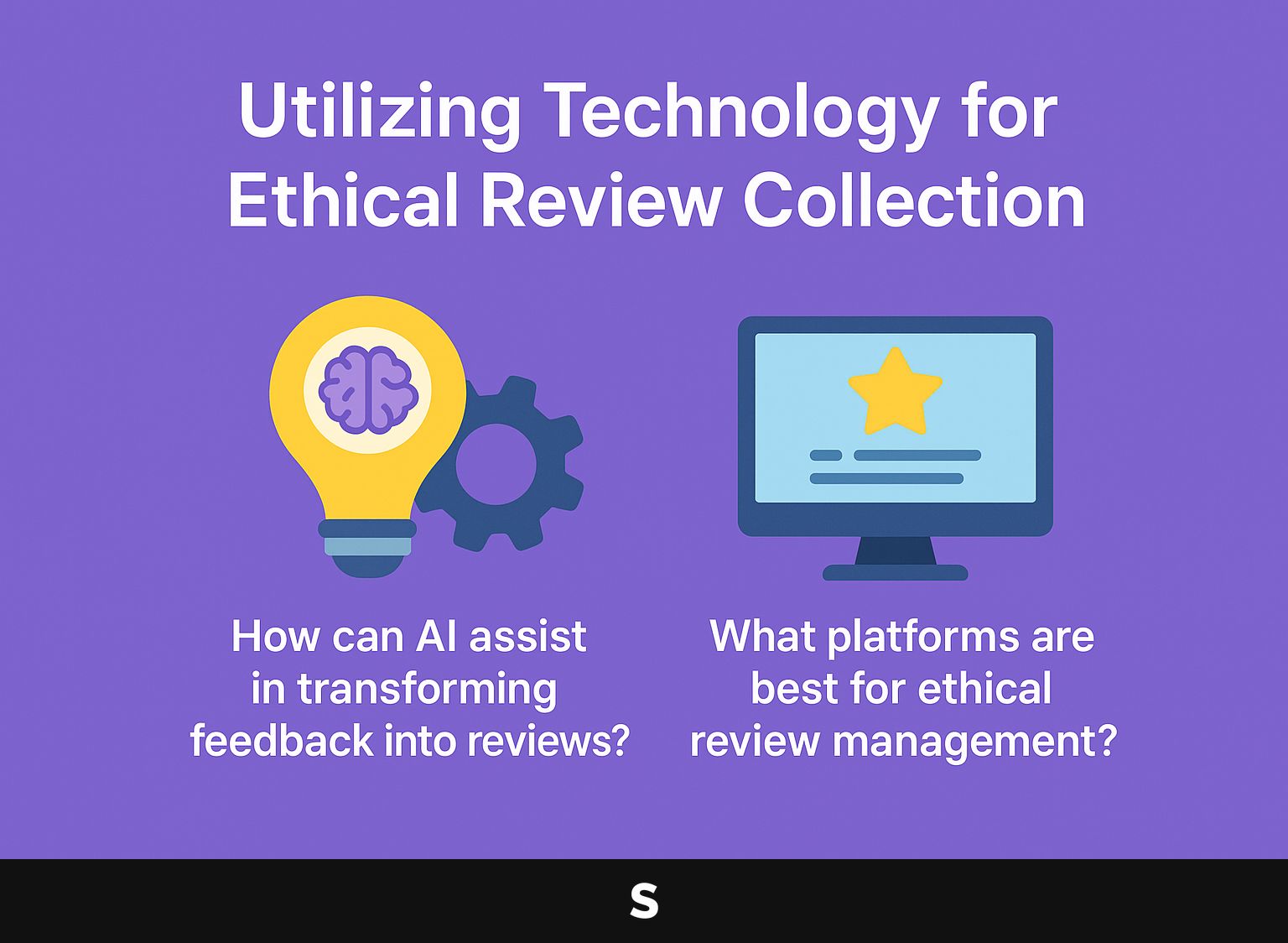
How can AI help turn feedback into reviews?
AI tools like Spokk.io can help law firms turn client feedback into organized reviews. This process highlights service quality and responsiveness while adhering to ethical standards.
Spokk.io helps law firms collect feedback with automatic surveys after services, using focused questions about service details. For example, firms can ask clients to rate communication clarity and responsiveness.
The AI then analyzes this feedback, identifying common themes and sentiments. This organized method makes sure testimonials are genuine and follow legal rules.
Spokk.io offers a feature to filter and showcase high-rated feedback directly on the firm’s website, enhancing credibility while maintaining ethical standards.
What platforms are best for ethical review management?
Utilizing reputable platforms such as Google Reviews, Avvo, and Yelp can help law firms manage client feedback ethically and effectively, enhancing visibility without ethical breaches.
To maximize impact, consider the following:
- Google Reviews plays an important role in local search ranking and helps bring in new clients.
- Avvo specializes in legal-specific feedback, helping firms build trust in the legal community.
- Yelp provides a broader audience and is essential for small practices aiming to capture local business.
Law firms should actively engage by responding to reviews, setting notifications for new feedback, and incorporating positive testimonials on their website. This proactive approach improves reputation and builds stronger client relationships.
Addressing Common Concerns in Review Collection
Addressing common concerns in review collection helps law firms handle challenges, follow ethical rules, and improve client relationships.
What should law firms avoid when soliciting reviews?
Law firms should avoid soliciting reviews in ways that could be perceived as coercive, such as offering incentives or framing requests that pressure clients for positive feedback.
Instead, focus on building real relationships and trust. For instance, consider timing your requests to when clients express satisfaction, like after a successful resolution.
Speak plainly and directly when you communicate. Tools like SurveyMonkey or Google Forms can simplify the feedback process while ensuring privacy.
Feel free to share positive reviews with potential clients to highlight your skills without asking them directly for recommendations. This method builds trust and adheres to ethical guidelines.
How to handle negative feedback ethically?
Addressing negative feedback ethically means replying quickly and professionally, recognizing client concerns without sharing confidential information or specific case details.
Begin by thanking the customer for their feedback, which sets a positive tone. Acknowledge the specific issue they raised and express empathy. For instance, “Thank you for sharing your experience; I’m sorry to hear you weren’t satisfied with our service.”
Next, suggest a solution or what to do next, like saying, “I’m open to talking more to find a way that suits you.” This approach addresses the issue directly and shows you’re dedicated to making the service better, turning a possible problem into a chance to learn and improve.
Bridging Question
As businesses depend more on customer feedback, it is important to assess how these reviews influence your brand’s reputation.
Engage with customer reviews by regularly monitoring platforms like Google Reviews, Yelp, and social media. Begin by creating notifications for mentions of your business name, so you can react quickly to all feedback, whether good or bad.
Use tools like Hootsuite or Brand24 to make this process easier. Replying directly to a negative review can change an unhappy customer into a loyal one. On the other hand, expressing gratitude to satisfied customers encourages positive feelings.
Consider these interactions as opportunities to demonstrate your brand’s values and commitment to customer satisfaction.
Contextual Considerations for Law Firms
Factors like talking with clients and behaving professionally greatly affect getting good reviews in the legal field.
How does client communication impact review generation?
Good communication with clients creates a positive experience, which increases the number of reviews and keeps clients happy.
To improve communication, law firms should use these important strategies:
- Schedule regular check-ins to update clients on case progress, ensuring they feel informed and valued.
- Use tools like Clio or MyCase to keep all communication in one place, allowing clients to easily get information and documents.
- Encourage feedback through brief surveys after case milestones, allowing clients to share their thoughts and experiences.
- Provide clear and concise explanations of legal processes in layman’s terms, helping clients feel more at ease and confident in your services.
What role does professionalism play in client satisfaction?
Professionalism in legal services directly correlates with client satisfaction, influencing their willingness to provide positive testimonials.
It’s important to clearly communicate by keeping clients informed about case updates, which builds trust. For instance, using tools like Slack or email newsletters can keep clients informed and engaged.
Paying close attention to details like proofreading documents helps reduce mistakes and improves your company’s trustworthiness. Encouraging feedback through surveys can also highlight areas for improvement, demonstrating a commitment to client care.
Dressing appropriately and maintaining punctuality in meetings reflects respect for clients and their time, further elevating their overall experience.
How can law firms measure the effectiveness of their review collection strategies?
Law firms can measure the effectiveness of their review collection strategies through metrics such as review volume, client satisfaction scores, and online visibility improvements.
To measure these metrics correctly, law firms should use tools like Google Alerts to check for new reviews and GatherUp to analyze feedback in one place.
Establish a baseline by recording current review counts, then set quarterly goals for increases in both volume and satisfaction scores. For instance, aim for a 20% rise in review counts within six months.
Use customer surveys after services to get feedback and improve what we offer. Regularly check these numbers to change plans and keep getting better.
What are the long-term benefits of ethical review practices?
Reviewing ethical practices in marketing provides lasting advantages like increased customer loyalty, better reputation, and adherence to legal standards.
By regularly using ethical review methods, organizations can build trust and openness.
For instance, regularly sharing client feedback can highlight your commitment to quality, allowing prospective clients to see genuine testimonials.
Using tools like SurveyMonkey to collect feedback and add this to your marketing can help build a strong group of supporters for your brand.
As time goes by, these practices help strengthen client relationships and lead to more referrals, because happy clients usually talk about their good experiences with others.
Maintaining Compliance and Best Practices
It’s important for law firms to follow ethical rules to maintain their reputation and avoid legal problems when gathering reviews.
How to keep updated on ethics rules and regulations?
It’s important for law firms to stay updated on changing ethics rules and regulations so they can modify their marketing strategies as needed.
To stay current with changes in ethics rules, law firms should consider practical strategies.
- Signing up for newsletters from the American Bar Association (ABA) and state bar associations is an important first step, as they often release updates.
- Setting up Google Alerts for relevant keywords, such as “legal ethics updates” or “state bar rule changes,” can bring immediate notifications.
- Joining online forums and social media groups helps legal professionals discuss and learn from others, keeping them updated on important changes in regulations.
What training can law firm staff receive on ethical review practices?
Law firm staff can benefit from training programs focused on ethical review practices, enhancing their ability to solicit and manage client feedback responsibly.
Such training programs often include workshops on legal ethics, client confidentiality, and effective communication skills.
For example, firms can implement sessions using case studies to illustrate ethical dilemmas encountered in practice. Reading resources like the ABA’s Model Rules of Professional Conduct is essential.
Role-playing situations help staff use ethical rules in real-life cases, allowing them to handle client interactions with assurance and honesty.
Examples of Ethical Review Collection in Action
Looking at actual cases of ethical review gathering can show useful lessons about what works well and what might go wrong for law firms.
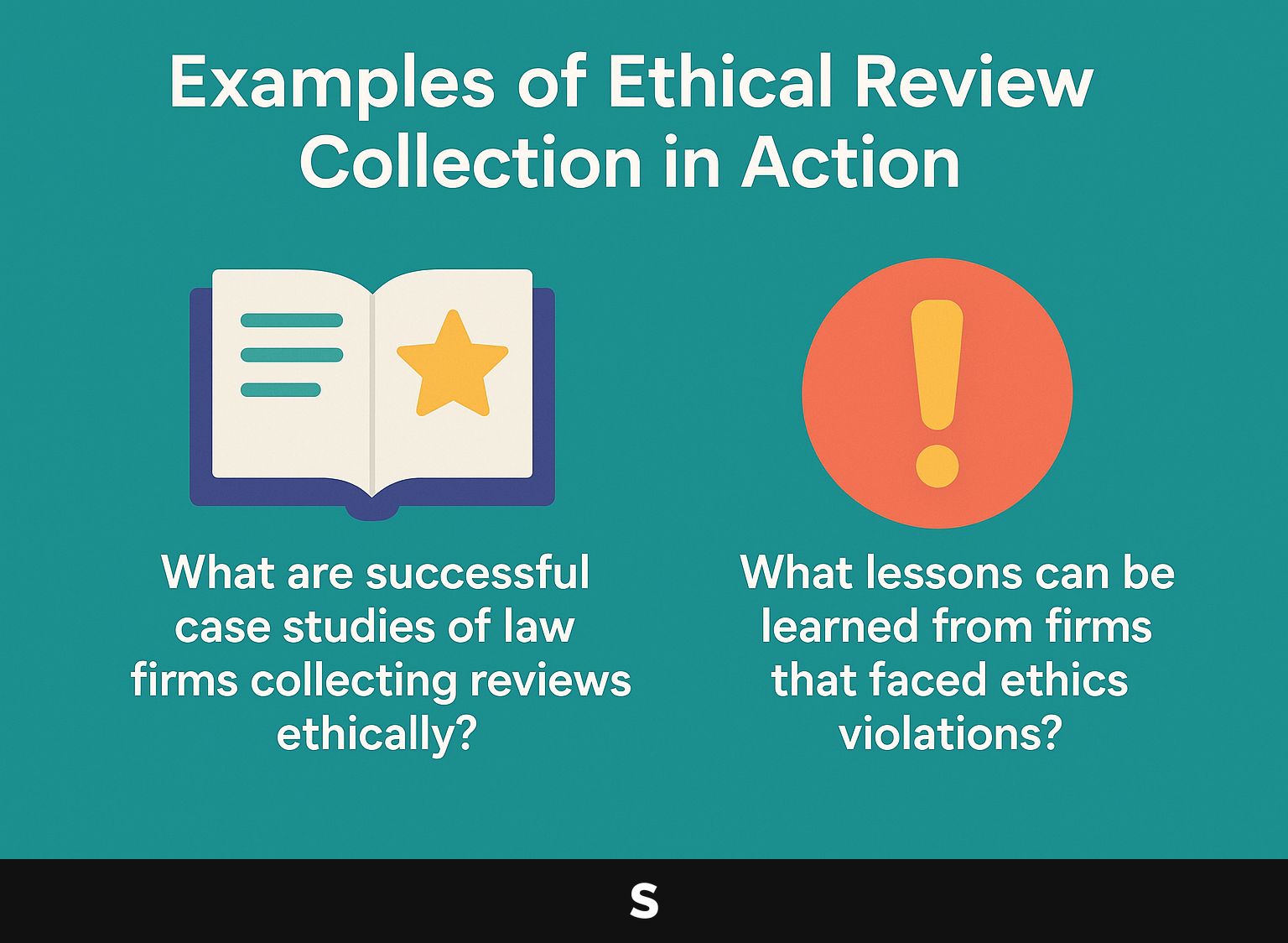
What are successful case studies of law firms collecting reviews ethically?
Successful case studies show how law firms have gathered reviews while following ethical rules, leading to increased client trust and involvement.
Smith & Johnson Law sent follow-up emails after consultations to gather feedback, resulting in a 40% response rate.
They created custom messages focusing on how important client experiences are, which resulted in a 25% rise in positive feedback.
Similarly, Greenfield Attorneys implemented a referral program, rewarding clients for referrals with gift cards. This method increased their reviews by 35% and created a stronger community around their practice.
Both companies highlight the need for openness and building real relationships with clients to gather honest reviews.
What lessons can be learned from firms that faced ethics violations?
Studying the experiences of companies with ethics violations shows why following rules is important and what happens if they are ignored.
For instance, a law firm in California faced sanctions after offering clients discounts in exchange for positive online reviews. To prevent such violations, firms should establish clear ethical guidelines regarding solicitation practices.
It’s important to set up a training program for staff on ethical marketing and review practices. Utilizing tools like Trustpilot or Google My Business can help manage reviews proactively without incentivizing clients.
Regular checks of how reviews are collected can help meet rules and build a culture of honesty in the firm.
**Emerging Trends in Client Reviews for Law Firms** As the legal field evolves, client feedback is becoming increasingly important. Law firms must pay close attention to client opinions to remain competitive. Future patterns in this area include: 1. **More Online Reviews**: Clients are increasingly posting reviews on the internet, so it’s important for law firms to keep an eye on these reviews and respond to them quickly. 2. **Importance of Transparency**: Clients expect openness and honesty. Law firms that clearly outline their procedures and fees are likely to receive more positive feedback. 3. **Priority on Client Satisfaction**: Delivering an excellent client experience will be important. Clients who feel valued and heard are more inclined to provide favorable feedback. 4. **Review Analysis**: Law firms can benefit from examining review data to find areas for improvement and to emphasize their strengths. 5. **Using Feedback to Improve Services**: Applying client feedback to enhance services and address common concerns will help maintain a good reputation. By concentrating on these areas, law firms can improve their services and strengthen their connections with clients.
Technological progress and changing ethical standards will greatly shape how clients review law firms.
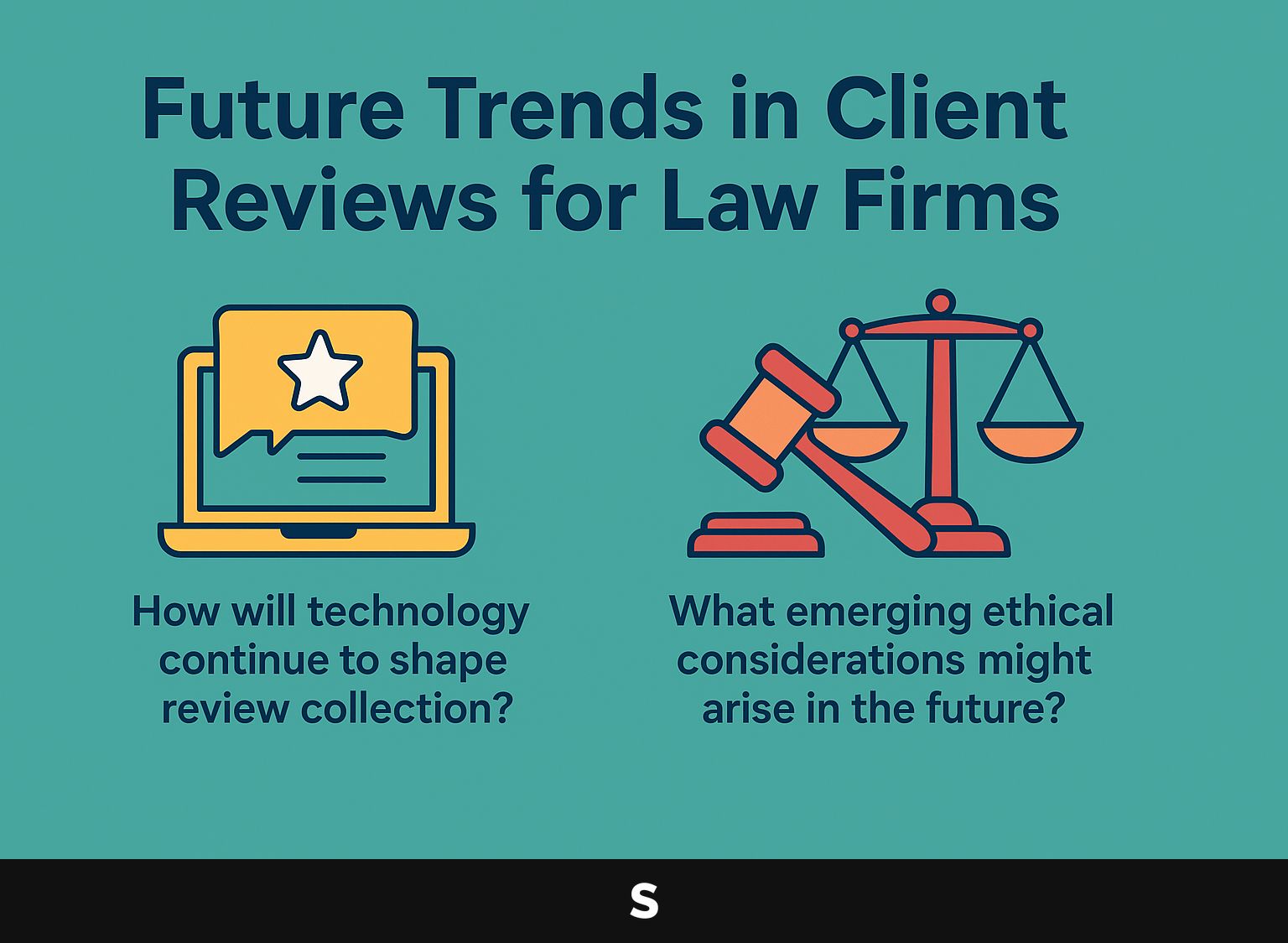
How will technology continue to shape review collection?
AI technology will significantly change how law firms gather and handle reviews, uphold ethical standards, and improve processes.
AI-powered review management tools, like GatherUp and BirdEye, provide features such as automatic review requests and sentiment analysis.
For instance, GatherUp allows law firms to seamlessly send follow-up emails after consultations, encouraging satisfied clients to leave positive feedback easily. Meanwhile, BirdEye provides real-time monitoring of reviews across platforms, enabling quick responses to any negative comments.
By using these tools, firms can simplify their review processes, follow ethical standards, and create a strong online presence that shows their reputation.
What new ethical issues might come up later?
As legal marketing changes, new ethical concerns might come up, requiring law firms to change how they gather reviews to stay within the rules.
One potential challenge is ensuring that client reviews are genuine and not solicited under duress, which can lead to legal complications.
To address this, law firms should implement clear policies for gathering testimonials by informing clients about the review process and their rights. Tools like Google My Business can help manage client feedback while maintaining transparency.
Regular training on ethical standards for staff handling reviews keeps them following the rules, allowing firms to responsibly use client feedback without risking ethical issues.
Frequently Asked Questions
Can law firms ethically collect client reviews?
Yes, law firms can ethically collect client reviews by following specific guidelines set by their state’s bar association. Law firms can get useful feedback from clients by not talking about details or results of cases, ensuring they follow ethics rules.
Are there any specific rules law firms need to follow when collecting client reviews?
Each state’s bar association has its own rules about client reviews. Law firms should learn these rules to make sure they don’t break any ethical guidelines when collecting reviews.
How can AI technology help law firms gather ethical client reviews?
AI technology, like the one from Spokk.io, helps law firms gather client reviews that meet ethical guidelines. It changes basic feedback into reviews that highlight the service quality, how fast the firm replies, and the attention given to clients. This eliminates the risk of discussing case specifics or outcomes that may violate ethics rules.
Is it important for law firms to gather client reviews?
Yes, gathering client reviews is important for law firms as it can help them improve their services and attract new clients. Reviews give useful feedback on client experiences and help law firms find ways to get better.
How can law firms use client reviews to attract new clients?
Law firms can use client reviews to showcase their excellent service and build trust with potential clients. By featuring positive reviews on their website and social media platforms, law firms can showcase their reputation and attract new clients.
What are some other ethical ways for law firms to gather feedback from clients?
Aside from client reviews, law firms can also gather feedback from clients through surveys and focus groups. These methods allow for more detailed and specific feedback, without the risk of violating ethics rules.
